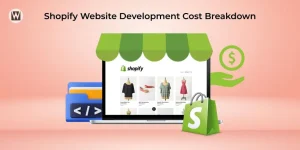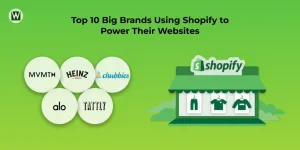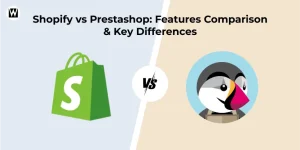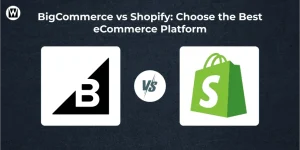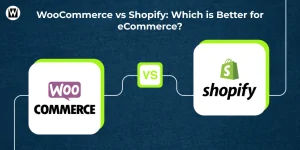Shopify vs Wix: Major Differences and the Winner
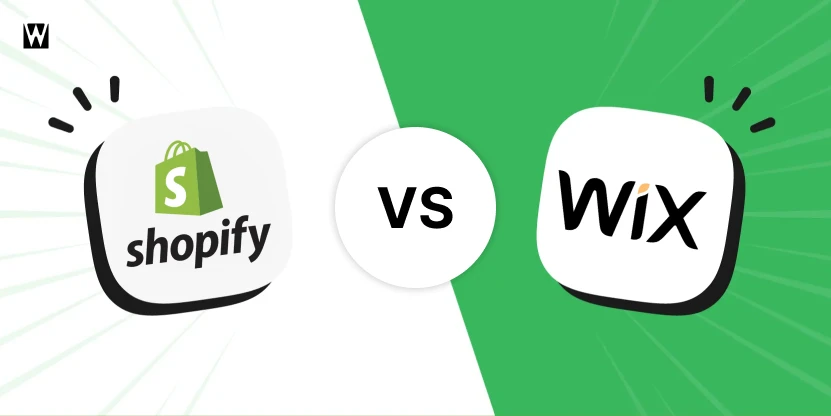
Selecting the right website builder for your small business is a lot like choosing a new contractor or roommate, because you will be living with the equipment, and you want to ensure that your final decision looks good, works, and gets along with almost everything.
If you’re stuck between Shopify and Wix, you’re not alone. One’s known for its eCommerce superpowers, the other for drag-and-drop simplicity. But which one works better for you?
In this head-to-head, we’re not just comparing features, but taking a look at use cases, scalability, and what it’s actually like to work with each daily when running a site. Whether you are setting up your first online shop or re-evaluating your digital presence, this guide covers the critical differences without all the technological lingo. Let’s go deeper and see which platform emerges as the victor.
Shopify vs. Wix at a Glance
Shopify is a well-known, cloud-based, SaaS ecommerce platform that provides everything you need to create, grow, and scale an online store. It comes with advanced capabilities such as inventory management, POS integration, multi-channel selling, analytics, and reasons as to why we recommend it to businesses that are purely focused on growing their eCommerce.
Wix, however, is an easy-to-use online website builder that caters to more than 200 million people and is the best choice for small businesses and online entrepreneurs who are looking for a convenient and affordable way to sell over the internet. It boasts shopping tools, payment facilities, and integrations with POD and dropshipping.
| Feature / Category | Shopify | Wix |
|---|---|---|
| Platform Type | eCommerce-focused platform | General-purpose website builder with eCommerce capabilities |
| Ease of Use | Moderate – tailored for business use | Extremely beginner-friendly with drag-and-drop interface |
| Design Flexibility | Template-based, customizable using Liquid code | Highly customizable visual editor, no coding required |
| eCommerce Features | Robust and scalable — ideal for growing businesses | Sufficient for smaller stores with limited products |
| App Store & Integrations | Offers 800+ apps; supports Zapier and more | Over 8,000 integrations available for eCommerce and marketing |
| Payment Gateways | Supports 100+ gateways including Shopify Payments and PayPal | Fewer options; supports PayPal, Stripe, and manual payments |
| Blogging and Content Tools | Basic blogging capabilities | Rich blogging and page-building tools |
| Pricing | Starts at $39/month (Shopify Basic) | Starts around $27/month (Business Basic) |
| Best For | Businesses focused on eCommerce and scaling | Small-scale sellers, creatives, and freelancers |
| Support | 24/7 live support via chat, email, and phone | Help center, live chat, and callback (during business hours) |
| Scalability | Excellent — handles large inventories and multi-channel retail | Moderate — more suitable for smaller or mid-sized businesses |
Wix Vs Shopify: What’s The Main Difference?
If you are torn between Wix and Shopify, you’re not alone. They both promise an easy way to sell online – but under the hood, they’re built very differently. So, let’s break it down piece by piece and see who wins each round.
Ease of Use
Shopify
- Shopify is designed specifically for eCommerce, so its setup process focuses on getting your store ready to sell quickly.
- While it doesn’t offer the same drag-and-drop freedom as Wix, Shopify’s guided setup wizard walks you through adding products, setting up payments, and configuring shipping.
- The interface is clean and business-focused, which means less design freedom but more streamlined selling tools.
Wix
- Wix is famous for its drag-and-drop builder that lets you design your website visually.
- Even if you’ve never built a website before, Wix’s intuitive interface and AI-powered Wix ADI (Artificial Design Intelligence) can create a personalized store in minutes.
- You can move elements around, add text, images, and products without touching any code.
- This makes Wix perfect for beginners, solopreneurs, and creatives who want total control over the look and feel of their site.
Themes and Design
Shopify
- Shopify offers more than 200 professional themes, with 12 free options and 190+ paid themes available on the Shopify Theme Store.
- All are mobile-responsive, fast-loading, and built with eCommerce in mind.
- You can also customize them using HTML, CSS, and Shopify’s Liquid language for advanced tweaks.
Wix
- Wix has 900+ templates across industries, with around 130+ eCommerce-specific templates.
- The drag-and-drop builder gives full visual freedom – no coding required.
- However, once you choose a template, you can’t switch without rebuilding your site.
eCommerce Features
Shopify
- Shopify is laser-focused on selling. It includes built-in inventory management, abandoned cart recovery, multi-channel selling (Amazon, eBay, IG), and up to 100 product variants per item.
- You also get features like automatic tax calculation, real-time shipping rates, and advanced product filtering.
Wix
- Wix has stepped up its eCommerce game, but it’s still better suited for smaller stores.
- You can manage products, take payments, and set shipping rules, but it lacks Shopify’s advanced inventory and multi-channel sales support. Product variants are limited to 6 options per product.
Payment Gateways & Transaction Fees
Shopify
- Shopify supports 100+ payment gateways, including Shopify Payments, Stripe, PayPal, and more.
- If you use Shopify Payments, you avoid extra transaction fees – but if not, Shopify charges up to 2% on top of your processor’s fees.
- Still, its global flexibility is unmatched.
Wix
- Wix supports fewer gateways (think Wix Payments, PayPal, and Stripe).
- If you’re in a supported region and use Wix Payments, you avoid extra transaction fees.
- The downside? It’s not available in every country, and integrations beyond the basics are limited.
Shipping & Fulfillment Tools
Shopify
- Shopify offers real-time carrier-calculated shipping, bulk label printing, and direct integrations with USPS, UPS, DHL, and more.
- You can set up multiple shipping zones, offer free shipping thresholds, and even automate international tax and duty calculations with Shopify Markets.
- Plus, apps like ShipStation, Easyship, and 3PLs connect seamlessly.
Wix
- Wix covers the basics—you can set rates by region, weight, or price.
- You can print shipping labels through integrations, but real-time shipping rates are only available on higher-tier plans, and international fulfillment is limited.
- Great for small stores, but it may not scale well with complex logistics.
Sales Channels & Multichannel Selling
Shopify
- Shopify shines in multichannel selling. It integrates seamlessly with Amazon, eBay, Facebook Shops, Instagram Shopping, Google Shopping, TikTok, and even Walmart Marketplace.
- Shopify’s ‘Buy Button’ lets you embed products on any website or blog. Recently, Shopify has also embraced NFT sales and metaverse commerce, staying ahead of trends.
Wix
- Wix supports selling on Facebook, Instagram, Google, Etsy, and eBay.
- While it covers the major platforms, the integrations are less deep than Shopify’s.
- For example, Shopify’s Google Shopping sync is more automated and robust. Wix is continuously improving, but it’s still catching up in multichannel depth.
SEO & Marketing Tools
Shopify
- Shopify covers the basics of SEO well-customizable URLs, meta descriptions, and alt tags.
- However, its blogging platform is more basic than Wix’s.
- Shopify’s real strength lies in its marketing analytics, abandoned cart emails, discount codes, and integration with powerful marketing apps like Klaviyo and Mailchimp.
Wix
- Wix has made huge strides in SEO. It offers customizable meta tags, URL slugs, alt text, and automatic sitemap generation.
- Wix’s blog platform is robust and flexible, great for content marketing.
- It also integrates easily with Google Analytics, Google Ads, Facebook Ads, and offers built-in email marketing tools and automation.
Pricing: What Will It Cost You?
| Plan Level | Wix (Monthly, Annual Billing) | Shopify (Monthly, Annual Billing) |
|---|---|---|
| Entry | N/A | $5 (Starter, limited features) |
| Basic Commerce | $29 (Business Basic) | $29 (Basic Shopify) |
| Mid-tier | $36 (Business Unlimited) | $79 (Shopify) |
| Top-tier | $159 (Business VIP) | $299 (Advanced Shopify) |
- Wix: Offers a free plan (with ads and Wix branding) and affordable eCommerce plans with no transaction fees. Pricing includes hosting, SSL, and support.
- Shopify: Pricing is higher but includes advanced features, 24/7 support, and scalability. Shopify offers a 3-day free trial and often offers promotions like $1/month for the first 3 months.
Customer Support
Shopify
- Shopify provides 24/7 support via live chat, phone, and email.
- Their support team is highly rated for responsiveness and expertise.
- Shopify also has an extensive knowledge base and community forums.
Wix
- Wix offers phone, email, and ticket support, with priority support on higher plans.
- Their help center is comprehensive, and there’s an active community forum.
- However, support hours may be limited depending on your region.
Performance and Security
Shopify
- Shopify uses a global CDN (Content Delivery Network), ensuring fast load times worldwide.
- It’s PCI DSS compliant, offers built-in fraud analysis, and automatic backups. Shopify’s security infrastructure is enterprise-grade.
Wix
- Wix websites load quickly for most users and include SSL certificates for secure transactions.
- Wix is GDPR compliant and regularly updates security protocols.
- However, some users report slower load times on media-heavy pages.
Final Verdict: Which Platform Should You Choose?
| Criteria | Best for Wix | Best for Shopify |
|---|---|---|
| Beginners & Creatives | ✔️ Easy drag-and-drop design | |
| Design Flexibility | ✔️ Customize every element | |
| Small to Medium Stores | ✔️ Built-in tools, no fees | |
| Multichannel Selling | ✔️ Extensive integrations | |
| Advanced eCommerce | ✔️ Scalable features & inventory | |
| Payment Flexibility | ✔️ No transaction fees | ✔️ Wide payment options |
| SEO & Blogging | ✔️ Strong SEO & blogging | |
| App Variety | ✔️ Huge app marketplace | |
| Pricing | ✔️ Affordable for small budgets | ✔️ Value for scaling businesses |
| Customer Support | ✔️ 24/7 expert support | |
| Performance & Security | ✔️ Enterprise-grade |
Pro Tips to Decide:
- Start Small? Go with Wix’s free or basic plan to get your store online quickly and affordably.
- Plan to Scale? Shopify’s robust infrastructure and multichannel selling will grow with you.
- Design Matters Most? Wix’s creative freedom lets you craft a unique brand experience.
- Selling Globally? Shopify’s advanced shipping, tax, and currency features make international sales easier.
Shopify vs. Wix: Which Should You Choose?
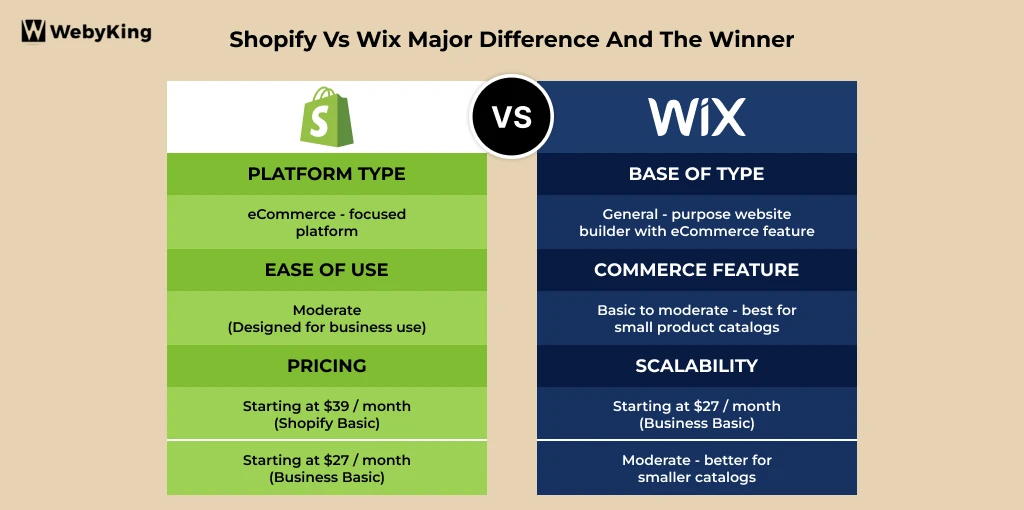
Here’s the bottom line: If you were making a creative blog or portfolio website, you should opt for Wix. If you were building a website for eCommerce purposes for medium or large-scale businesses, Shopify would be a better option.
This isn’t to suggest that Shopify has the capabilities to create an imaginative blog or that Wix lacks eCommerce capabilities; rather, these aren’t the main advantages of either platform.
Think about your goals, budget, and needed features- then choose the best platform for you!
If you are seeking expert Shopify development services or Wix web design services to upscale your business, look no further than WebyKing. Our team of skilled developers is ready to provide custom solutions to meet your unique requirements and drive your online store’s success.
Contact us today and take the first step towards online success.
FAQs on Shopify vs. Wix
Can I switch from Wix to Shopify without losing my content?
Yes, you can migrate to Shopify, but it’s not automatic. You will need to manually transfer your products, blog posts, and content, or use a third-party migration tool like Cart2Cart to help streamline the process and preserve key data.
Which platform is better for beginners: Wix or Shopify?
Wix is generally more beginner-friendly, thanks to its drag-and-drop editor and intuitive design interface. Shopify has a steeper learning curve but offers more robust eCommerce tools for scaling businesses.
Is Shopify more expensive than Wix in the long run?
Yes, Shopify tends to cost more, especially when you factor in third-party app subscriptions and transaction fees. However, the advanced eCommerce features can justify the price for businesses focused on online sales growth.
Which platform offers better SEO tools: Wix or Shopify?
Shopify has a slight edge in SEO, with faster load times, better structured data handling, and more control over key elements. Wix has improved its SEO significantly, but still falls a bit short on technical aspects.
Can I sell digital products on both platforms?
Absolutely! Both Wix and Shopify support digital product sales, including downloadable files, courses, and media. However, Shopify provides more flexibility and security for digital goods delivery at scale.
Ravi Makhija, the visionary Founder and CEO of WebyKing, is a seasoned digital marketing strategist and web technology expert with over a decade of experience. Under his leadership, WebyKing has evolved into a premier full service web and marketing agency, delivering innovative solutions that drive online success. Ravi’s deep understanding of the digital landscape combined with his passion for cutting-edge technologies empowers him to consistently exceed client expectations and deliver results that matter.


